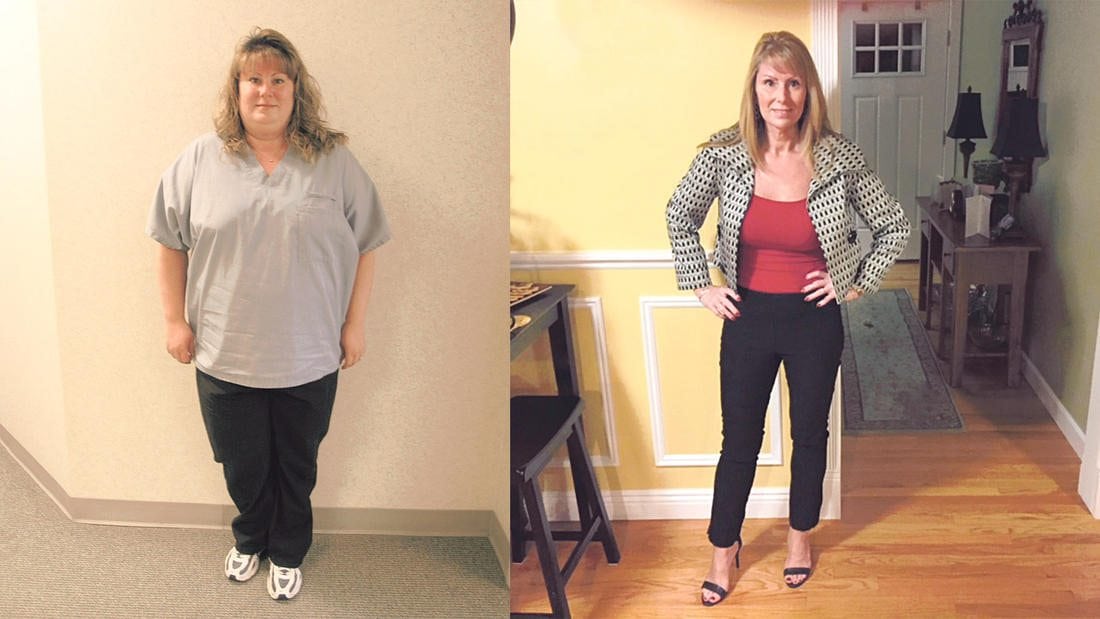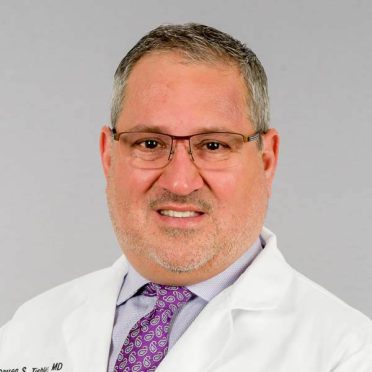By Margaret DeMarino
By age 32, Tammy Ratcliffe weighed 240 pounds and suffered from eight medical conditions including diabetes and high blood pressure.
Overweight most of her life, Ratcliffe remembered being weighed in a nurse’s office in third grade and told she was 120 pounds. “I weighed so much more than everyone,” she says.
She tried weight-loss programs, fad diets and diet pills. By the time she made a doctor’s appointment to explore the option of bariatric surgery, she had been diagnosed with high cholesterol, fatty liver disease, acid reflux and sleep apnea, among other maladies.
“I remember him telling me I was the sickest 32-year-old he had ever met, and that at this rate I would never live to retire,” Ratcliffe says.
His frank assessment got through to her.
Ratcliffe, 43, has maintained a 120-pound weight loss since her gastric bypass. A registered nurse, she counsels patients who are considering weight-loss surgery themselves.
“People always want to know how much weight they are going to lose,” she says. “I tell them instead of looking at it as ‘counting down’ to think of it as ‘counting up’ in terms of the new things you will be achieving.”
Those achievements can be as simple as waking up feeling refreshed rather than exhausted, and not having to worry about fitting into a chair with arms, she says. Or being able to move more and discovering what your body can do.
“I look at the surgery as a gift,” Ratcliffe says. “I kind of pinch myself every morning that this body belongs to me.” She has become an avid runner, winning a 5K at the pace of 7 minutes, 24 seconds a mile. “My only regret is that I didn’t do it sooner,” she says. “This is my do-over. Not everyone gets a do-over.”
People considering bariatric surgery need to be willing to develop a new relationship with food, she says. While the stomach will be surgically reduced in size to increase satiety, the patient will need to eliminate sugar and high carbohydrate foods, she says.
“You can eat regular food, but you don’t eat as much,” she explains. “You eat your last bite and that’s it.”
As a nurse, she tells patients to view their surgery as an investment in themselves. “When you are ready to make the commitment, then that’s the right time for you,” she says.
Ratcliffe’s doctor, Darren S. Tishler, the director of Medical and Surgical Weight Loss at Hartford Hospital, says patients must qualify for surgery after going through a lengthy process. “The workup involves not only making sure it is medically appropriate and safe, but that the patient is psychologically prepared for what’s ahead,” Tishler says.
The process includes determining the best procedure for each patient. Options include a sleeve gastrectomy, where about 80 percent of the stomach is removed, allowing the patient to feel fuller when eating a reasonably sized meal. With a gastric bypass, the surgeon creates a very small upper stomach pouch and bypasses the rest of the stomach and the first part of the small intestines. This not only allows a patient to feel more full, it also alters the absorption of calories.
A surgical option can often slow down, stop or reverse the domino effect of obesity-related conditions, Dr. Tishler says. However, a patient needs to make lifestyle changes as well. Ratcliffe runs 3 to 5 miles a day and has resolved all of her medical conditions except diabetes.
“There is no magic treatment for obesity. I wish I had a magic pill for people. We don’t have that, but we have effective tools that can help people live longer and have a better quality of life,” Dr. Tishler says.
“Patients tell me all the time that they know someone who can eat everything they want and not gain a pound. I tell them, ‘You will never be that person. For you, it’s going to be a lifetime treatment plan.’”
In order to be a candidate for the surgery, which is typically covered by insurance and Medicare, several factors are considered, including medical history and weight-to-height ratio.
“The criteria is a body mass index of 35 and above with an obesity-related health problem, or a BMI of 40 or greater,” Dr. Tishler says, adding that patients who undergo bariatric surgery might be 40 to 100 pounds overweight or more.
“The goal of weight-loss surgery is helping people to move better. You measure success by doing more with the kids, running around with them playing soccer, getting in and out of the car more easily,” he says.
“If I can help patients to move better, I know they will live longer and have a better quality of life.”
To schedule a free educational session with a surgeon at the Division of Metabolic and Bariatric Surgery at the Hartford Hospital Department of Surgery, call 855.792.6258 or visit Whatwillyougain.org.


